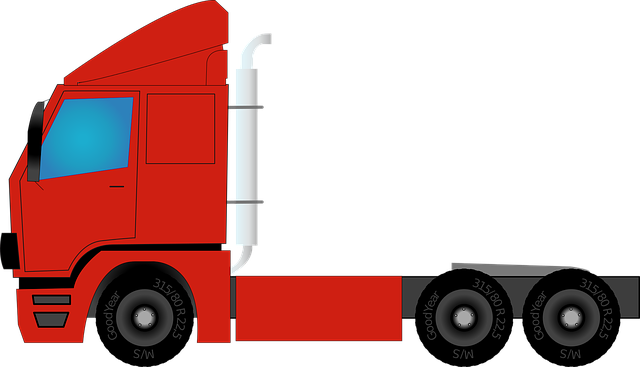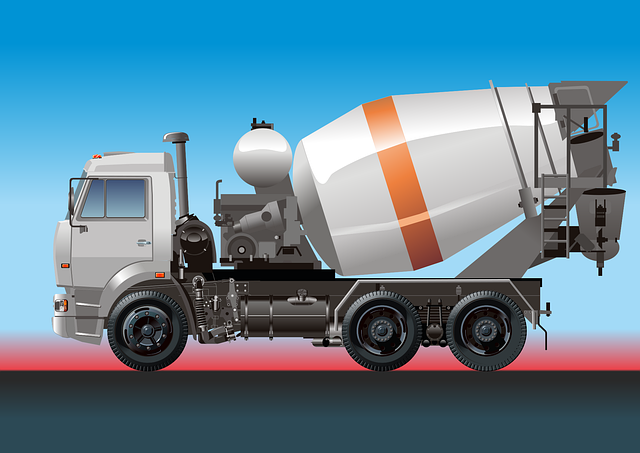Small trucking companies face challenges in finding suitable insurance due to their distinct operational needs. Customized insurance solutions offer personalized policies catering to specific risks like fleet management, cargo protection, and driver safety. These tailored policies include flexible options like cargo insurance, liability protections, and maintenance coverage, aligning with unique business requirements. By implementing these strategies, small trucking companies gain cost-effective, relevant coverage, enhancing protection, financial security, and peace of mind in the competitive trucking industry.
In today’s competitive market, small trucking companies face unique challenges in securing adequate insurance coverage at affordable rates. This article explores cost-effective strategies to create personalized insurance policies tailored to the specific needs of these businesses. We delve into understanding the nuances of small trucking operations, highlighting the benefits of customized insurance. By implementing flexible plans and strategic approaches, trucking company owners can access optimal protection for their fleet, cargo, and business without breaking the bank. Discover practical solutions for managing risks and securing sustainable growth through small fleet insurance strategies.
Understanding the Needs of Small Trucking Companies

Small trucking companies face unique challenges when it comes to insurance. They require tailored trucking coverage that understands the specific risks and needs of their operations, from managing a small fleet to ensuring cargo protection. Many traditional insurance plans fail to offer the flexibility and customization needed for these businesses, often leading to gaps in coverage or unnecessary costs.
Customized insurance for small trucking companies involves creating personalized trucking policies that address not just vehicle and driver safety but also the unique aspects of their cargo and operations. This could include specific provisions for different types of cargo, liability protection tailored to the value of their fleet, and flexible plans that scale with their growth. By offering such solutions, insurance providers can help small trucking businesses protect themselves effectively without breaking the bank.
Benefits of Customized Insurance Policies

Customized insurance policies offer a myriad of benefits tailored specifically to small trucking companies. Unlike one-size-fits-all plans, these policies allow businesses to select precise coverage based on their unique operations and risks. For instance, a company specializing in local deliveries may opt for comprehensive cargo insurance to safeguard its goods during transit, while an international shipping firm could require specialized coverage for overseas ventures.
This level of customization ensures that small trucking companies receive the most relevant and cost-effective protection. Flexible trucking insurance plans can include customized deductibles, limits, and exclusions, aligning with the business’s specific needs. As a result, owners can manage costs more efficiently, ensuring they only pay for what’s necessary while maintaining adequate protection for their fleet, drivers, and valuable cargo.
Strategies for Developing Tailored Trucking Coverage

Small trucking companies often face unique challenges when it comes to insurance due to their specialized nature and varying operational needs. Developing tailored trucking coverage is a strategic approach that enables these businesses to protect themselves effectively while staying within budget constraints. One key strategy involves assessing each truck’s specific use, cargo carried, and driver qualifications, allowing insurers to design policies that align precisely with the business’s requirements. For instance, a company transporting hazardous materials would require specialized coverage for liability and accident response, whereas a local delivery service might focus more on comprehensive vehicle damage protection.
By working closely with insurance providers or leveraging digital platforms offering small fleet insurance solutions, trucking businesses can access flexible plans that cater to their evolving needs. Personalized trucking policies should incorporate options for cargo insurance, liability protections, and coverage for maintenance and repair costs. This customized approach ensures that small trucking companies receive the best value for their money, providing them with peace of mind as they navigate the road ahead with enhanced protection and financial security.
Implementing Flexible Insurance Plans for Optimal Protection

Small trucking companies often face unique challenges when it comes to insurance. Traditional policies might not offer the level of customization needed to address their specific risks and needs, leading to overpriced or underprotective coverage. Implementing flexible insurance plans allows for tailored trucking coverage that directly aligns with the operations and cargo types of small fleets. This means businesses can secure comprehensive protection without unnecessary expenses.
By adopting flexible trucking insurance plans, small trucking companies gain access to personalized policies that account for factors like vehicle types, driving distances, and cargo value. This approach ensures that each company pays only for the coverage they require, maximizing cost-effectiveness. Moreover, it provides peace of mind, knowing that their business is protected against potential risks associated with their unique operations.
Small trucking companies can significantly benefit from adopting cost-effective strategies to create personalized insurance policies. By understanding the unique needs of these businesses and leveraging the advantages of customized coverage, operators can navigate risks effectively while optimizing their financial health. Strategies such as developing tailored trucking coverage, implementing flexible insurance plans, and focusing on comprehensive protection for cargo and fleet assets ensure that small trucking companies are prepared for potential challenges. Embracing these solutions allows them to stay competitive in the market and foster sustainable growth.
